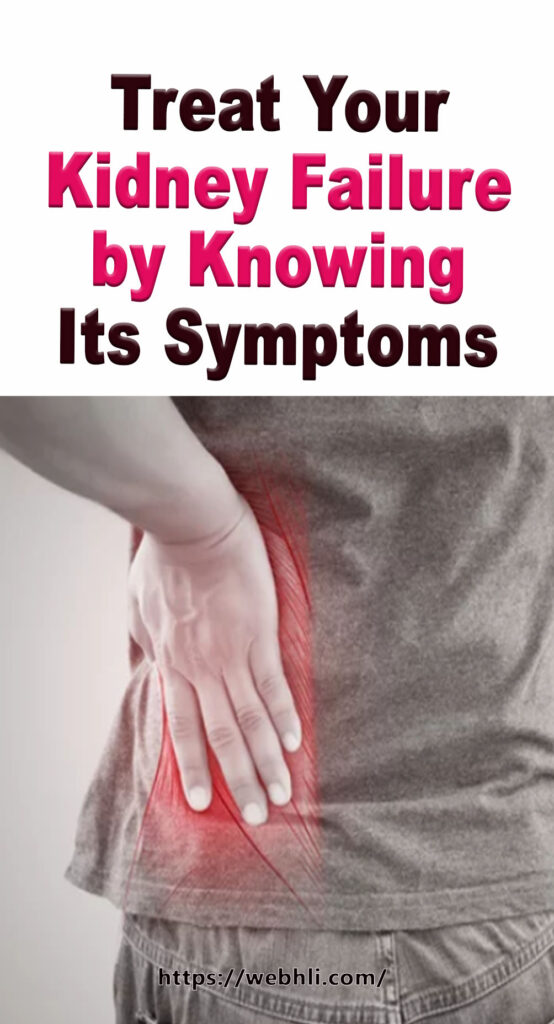
Kidney failure is a growing problem across the world. Kidney failure, unfortunately, can have enormously few symptoms to initiate with. It will initial be detected on blood tests by your doctor when your kidney function declines. A good number people don't experience any effects of kidney failure for the period of the early stages.
You start to build up symptoms related to losing the normal functions the kidneys perform as kidney failure progresses. Kidney failure causes, signs and symptoms of kidney failure could be akin in ARF and CRF with symptoms increasing and worsening in CRF.
WHAT IS THE BEST DRINKS FOR YOUR KIDNEYS
How Lemon and Lemon Water Can Help Reverse Diabetes
Urinary Tract Infection Home Cure
Control Your Diabetes Better With These Helpful Tips
Gastroparesis - A Challenge to Control
Blood Sugar Control and Diet - A Plan to Reverse Diabetes
Diabetes Natural Home Remedies – Worth a Try?
Can Magnesium Prevent Diabetes?
Zinc Shown to Promote Insulin Production In Diabetics
It is very crucial to pay attention to the symptoms of acute renal failure. If it is not diagnosed and treated within days, the condition can be fatal. Some of symptoms may include greatly reduced urine output; drowsiness and headache; and back pain as well.
Acute renal failure takes place rapidly - could take for days, weeks, or months. It could be caused by severe dehydration for a prolonged period, an illness connected with severe infection, or also due to kidney stones. These conditions are usually totally curable particularly if the symptoms are recognized and treated early.
Unlike acute kidney failure, chronic kidney failure slowly gets worse. Most frequently, it effected from any disease that causes regular kidney function loss. It could range from mild dysfunction to severe kidney failure. The disease might lead to end-stage renal disease (ESRD).
Chronic renal failure, which develops slowly, can have vague and sporadic symptoms. Typically, the syndrome starts with a sense of weakness and a loss of desire, followed by repeated urination, specially at night; pale, itchy, and easily bruised skin; shortness of breath; continual hiccups; muscular twitching; a feeling of pins and needles in the hands, feet; or other areas and also leg cramps.
End-stage renal disease, a severe illness, creates noticeable symptoms, for instance: to a great extent reduced volume of urine; swelling of the face, limbs, and abdomen; ruthless lethargy; headache; furry tongue; extremely itchy skin; and breath that smells resembling ammonia.
Fluids might be restricted, frequently to an amount equal to the volume of urine produced. Restricting the quantity of protein in the diet can sluggish the upsurge of wastes in the blood and be in charge of associated symptoms for instance nausea and vomiting. Salt, potassium, phosphorus, and other electrolytes could be restricted. Dialysis or kidney transplant might ultimately be needed.
Visit your physician straight away if you have doubts that you suffer from even one of the symptoms. It could be something entirely different, but if it is connected with renal failure, you could be saving a lot of problems in the future.
WHAT CAN YOU EAT IF YOU HAVE DIABETES
Good Energy Food for Diabetics
10 Simple Food Concepts Every Person Living With Diabetes Should Know
Making Cheesecake For Diabetics
Enjoy the Taste and Benefits of Diabetic Foods
Will The Mulberry Leaf Help Your Diabetes?
If you want to get some excellent resources on kidney, please visit my site on You and Your Kidney [http://allaboutkidney.blogspot.com] or Kidney Failure Symptoms [http://allaboutkidney.blogspot.com/2008/12/treat-your-kidney-failure-by-knowing.html]
Article Source: http://EzineArticles.com/1809129



 Protected by Patchstack
Protected by Patchstack